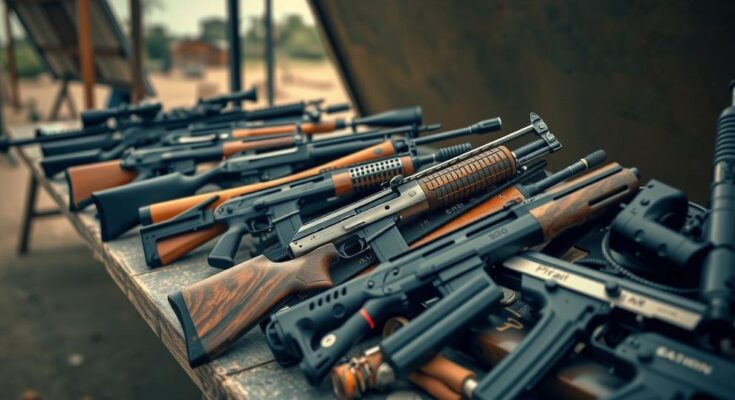Amnesty International reported that French-made military technology is being employed in Sudan’s civil war, violating a UN arms embargo. The Rapid Support Forces militia utilizes vehicles supplied by the UAE fitted with French systems. The organization calls for the cessation of these supplies and the expansion of the embargo across Sudan amidst concerns of human rights violations and ongoing conflict between the RSF and Sudanese army.
Amnesty International has reported that French military technology is being utilized in the ongoing civil conflict in Sudan, contravening a United Nations arms embargo. The organization asserts that the Rapid Support Forces (RSF) militia is employing vehicles equipped with French-made systems, previously supplied by the United Arab Emirates, to engage the Sudanese army in the Darfur region. Agnès Callamard, Amnesty’s Secretary General, stated, “Our research shows that weaponry designed and manufactured in France is in active use on the battlefield in Sudan.” Despite these serious allegations, the French authorities have yet to respond, while the United Arab Emirates continues to deny providing arms to the RSF. The Galix defense system, produced by French firms KNDS and Lacroix, is integrated into land forces for defense against close-range threats. Amnesty expressed concerns that these weapons could contribute to severe human rights violations, urging the French government to ensure that suppliers cease exporting this system to the UAE. The UN’s arms embargo was first imposed on Darfur in 2004 due to accusations of ethnic cleansing against non-Arab populations. In light of recent firings, Amnesty has called for the embargo’s extension across Sudan and enhanced monitoring efforts. The paramilitary RSF, led by General Mohamed Hamdan Daglo, has been in conflict with Sudan’s regular army since April 2023 amid a fierce power struggle, with both groups facing allegations of committing war crimes. Photographic evidence shared by Amnesty confirmed the presence of the Galix system on damaged vehicles in the conflict zone. As the fighting persists, resulting in untold civilian casualties and displacements, Amnesty International has urged all nations to refrain from supplying arms to any warring factions in Sudan. Both the RSF and the Sudanese army are under scrutiny for their roles in the violence that has claimed thousands of lives and rendered millions homeless.
The civil war in Sudan has escalated since April 2023, primarily involving the RSF and the Sudanese army. This conflict arose from a power struggle between former allies, leading to widespread violence, allegations of ethnic cleansing, and severe human rights abuses. The United Nations imposed an arms embargo on Darfur in 2004 to curb the violence, and with the recent outbreak of further conflict, humans rights organizations are advocating for stronger measures to prevent arms supplies to conflict parties.
Amnesty International’s revelations regarding the use of French-made military technology in Sudan highlight serious compliance issues with international arms embargoes. The ongoing conflict between the RSF and the Sudanese army poses significant humanitarian concerns, as both parties are accused of severe human rights violations. Immediate international action is necessary to prohibit arms supplies to ensure that these violations do not continue, emphasizing the need for stringent export controls and monitoring mechanisms.
Original Source: www.bbc.com




